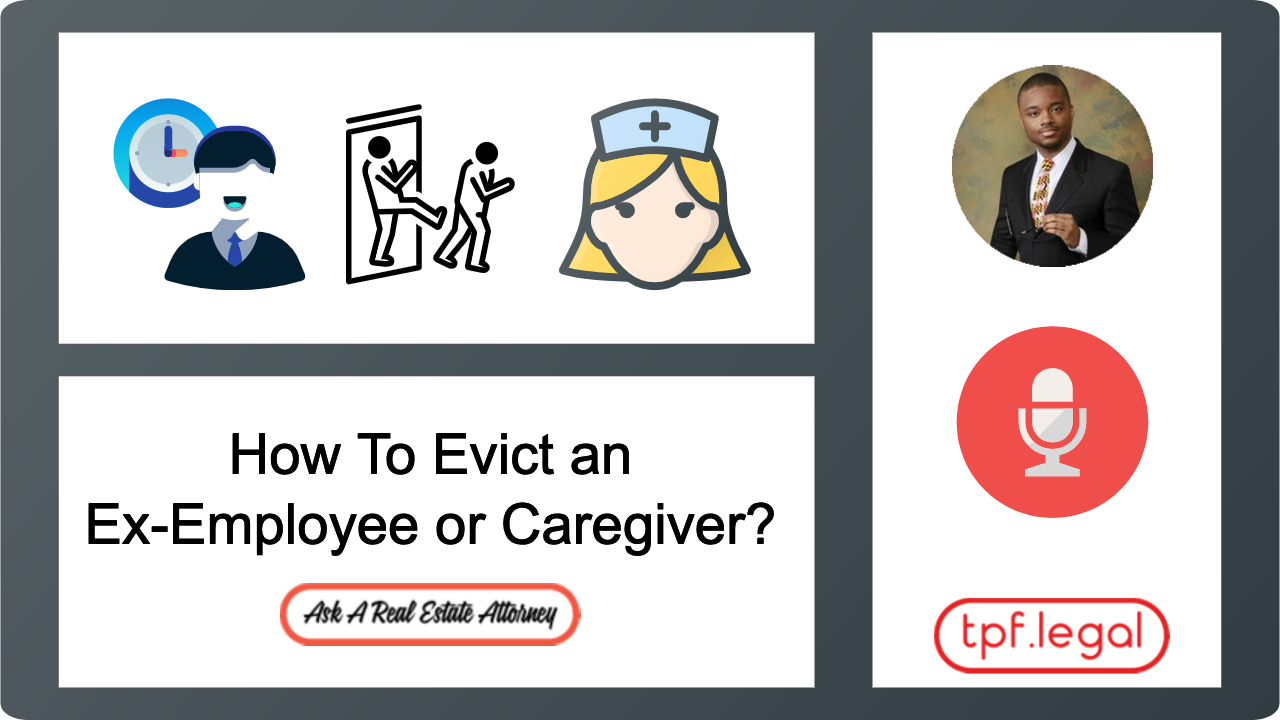How Can I Evict an Employee or Caregiver I Fired That Refuses to Leave in Maryland?
Sometimes employers provide their employees or caregivers housing, and when they fire their caregiver or employee they refuse to leave.
If this happens in Maryland, then the employer will have to go to the local District Court in order to evict their former employee or caregiver.
There are three possible causes of action to use in this situation: wrongful detainer, tenant holding over, or breach of lease.
And I think the answer of which one is appropriate depends on the legal relationship status between the parties: landlord/tenant or licensor/licensee.
A tenant has a lease (possessory interest) in the property. A licensee has a license to use the property, at least until the license is revoked.
The ramifications of this is that if the employee or caregiver is a tenant, then they have to receive a minimum of a 60 day notice of non-renewal from their landlord if the lease is month to month or year to year. If they have not left when the notice expires, then the a holdover action can be filed against them.
In the alternative, a breach of lease action can also be used to evict the former employee or caregiver if they’re in breach of the lease. This generally requires a 30 day notice but a 14 day notice can be used in an emergency situation.
If they are not a tenant but a licensee, then they just have to be asked to leave. If they refuse to leave then they become squatters. Wrongful detainer actions are used to evict squatters, more specifically licensees that refuse to leave in this case.
Whenever I draft employer-employee housing agreements I like to use the licensor-licensee language. And make it clear that the licensee has to leave when their employment ends. That said many employers offer their employees lease agreements with similar language. The potential downside of using a license agreement instead of a lease agreement is that it’s possible for a Judge to construe the agreement as a lease and not a license. For that reason I think it’s a good idea to have the license drafted by an attorney to mitigate the risk.
- How Can I Evict An Employee or Caregiver I Fired That Refuses to Leave in Maryland? - February 6, 2023
- Can A Tenant Leave Property Before The Lease Agreement Expires in Maryland? - January 29, 2023
- Can I Be Evicted or Locked Out By My Wife, Husband, Boyfriend, or Girlfriend in Maryland? - January 28, 2023


Facebook Comments